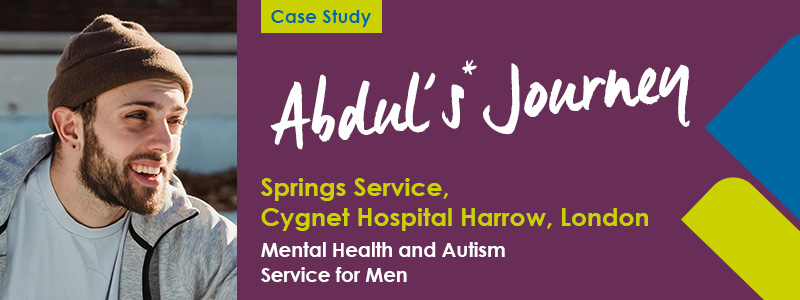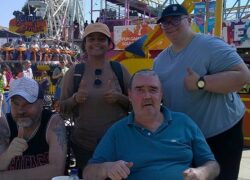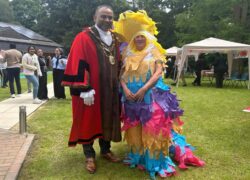
Abdul’s* history
Abdul is a young man in his early 20’s who began experiencing psychotic episodes during his teen years. He was subsequently seen by the Children’s Mental Health Services. Following this, he was diagnosed with Bipolar Affective Disorder and Asperger’s.
When Abdul came to us:
Abdul became extremely unwell and developed strong delusional beliefs, which subsequently led to his imprisonment for harassment. In prison, he was assessed as being mentally unwell and was transferred to a mainstream Low Secure Unit under Section 47 of the Mental Health Act (MHA). Abdul’s assessment indicated that he needed to undergo a rehabilitative process at a specialist autism unit.
Abdul was then sent to the Springs Service at Cygnet Hospital Harrow, a specialist service supporting men with autism and other co-morbid mental health needs with challenging behaviours.
Abdul’s care:
Initially, Abdul kept to himself on the ward and would need prompting to come out of his room, he mostly only came out for food and medication. On occasions, when he did engage, he would present as unpredictable, becoming confrontational and intrusive towards his peers and staff.
Abdul reported being preoccupied with his thoughts, and that it took him time to process information. The multi-disciplinary team (MDT) felt he needed a full medication review and much-needed input from the nursing staff and therapy services.
Soon after a full medical review, Abdul had some different medications introduced to his treatment plan. Gradually, he started to engage with staff on the ward, preferring the older members of the team. Abdul felt it was easier to communicate with older adults as they had more in common and similar interests to him.
Abdul found engaging in occupational therapy groups to be enjoyable, especially the physical health groups, including walking and community sports. He also used the gym regularly and was very motivated to improve his physical health and weight.
Abdul was overweight when he came to Cygnet Hospital Harrow and wanted to lose some weight. With the help of nursing staff and a fitness trainer, Abdul managed to accomplish his goal of losing weight. This in turn helped his physical and mental well-being.
Once he had his motivation back, he fully immersed himself in many activities offered to him on the ward. He was actively involved in the Recovery College and co-produced a course about politics. From participating in the Recovery College and showing much enthusiasm in gaining employment, Abdul was offered the opportunity to come back to Cygnet Hospital Harrow as an Expert by Experience once he was discharged from the service.
Abdul today:
Abdul continues to work with the MDT and was persistent in his approach to regaining his independence. With this determination and insight into his mental illness, he was successfully discharged into the community, where he returned to live with his parents who had always been a protective factor in his recovery.
One year on and true to his word, Abdul is an Expert by Experience at Cygnet Hospital Harrow and he currently runs the People’s Council and supports others in the Recovery College.
*Name has been changed to protect his identity




